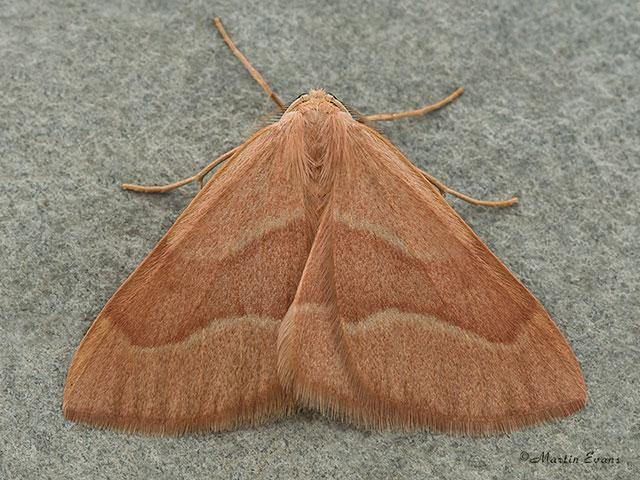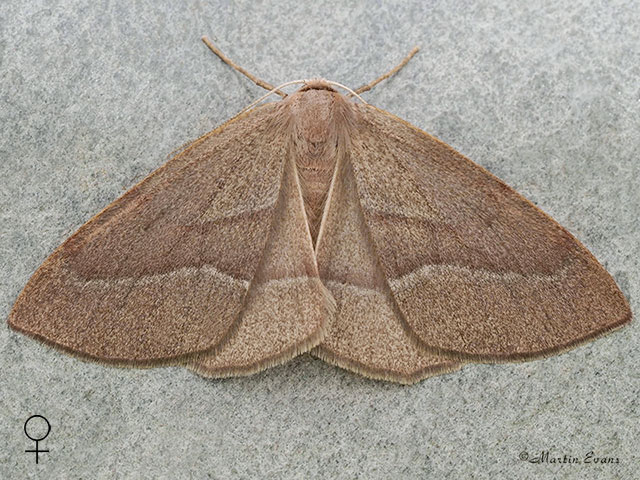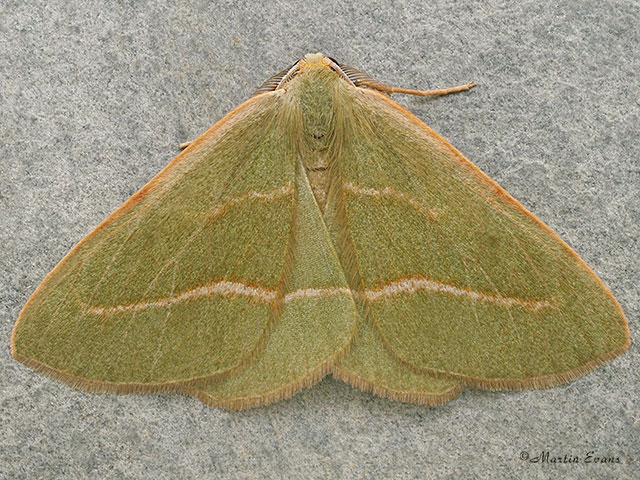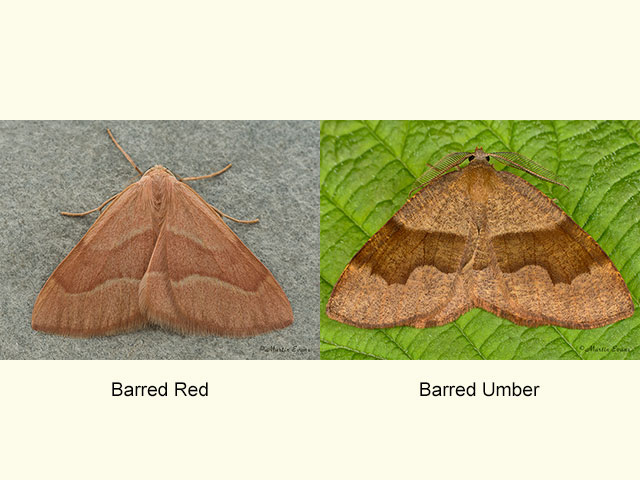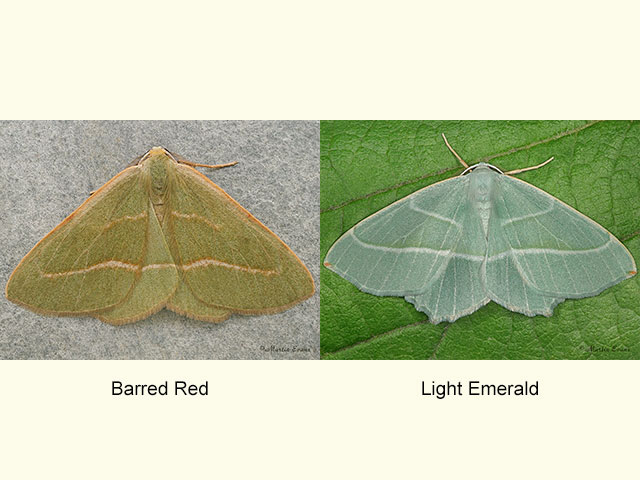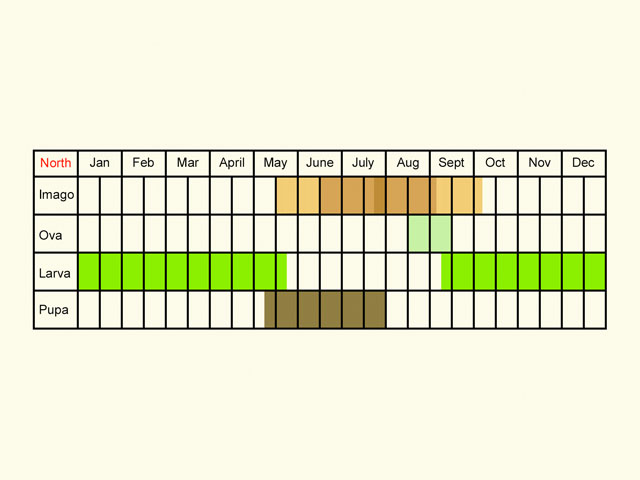Geometridae
70.284 Barred Red Hylaea fasciaria (Linnaeus, 1758)
Common
Similar species: Barred Umber Plagodis pulveraria is superficially similar until put alongside this moth. It has a more curved leading edge of the forewing and a straighter inner edge and more ragged outer edge to the cross-band. Light Emerald Campaea margaritaria differs from the green form of Barred Umber f. prasina in that it is blue-green rather than orange-green, it has an orange dash in the forewing tip, the inner central cross-line trails outwards towards the trailing edge, the outer central cross-line lacks the sharp bend and it has pointed hindwings.
Forewing: 17 to 21mm
Habitats: Pine forest, conifer plantations, conifer shelterbelts, parkland, amenity conifer planting and gardens.
Habits: The moth can be disturbed from the lower branches of conifers. It comes to light.
Foodplant: The larva feeds mainly on Scots Pine and Norway Spruce, but also Douglas Fir, European Larch, Western Hemlock and other conifers.
On the European mainland it has also been recorded feeding on European Silver Fir and Norway Spruce.
